The milk temperature is too high.
Check the temperature of the milk in the milk container.
If the temperature is above 10 °C, refrigerate the milk.

The milk/milk froth is dispensed erratically by the coffee machine (sprays, splutters) (CVA 6xxx built-in coffee machine).
Check the temperature of the milk in the milk container.
If the temperature is above 10 °C, refrigerate the milk.
Push the milk container in until it clicks into position.
Cleaning the glass milk container:
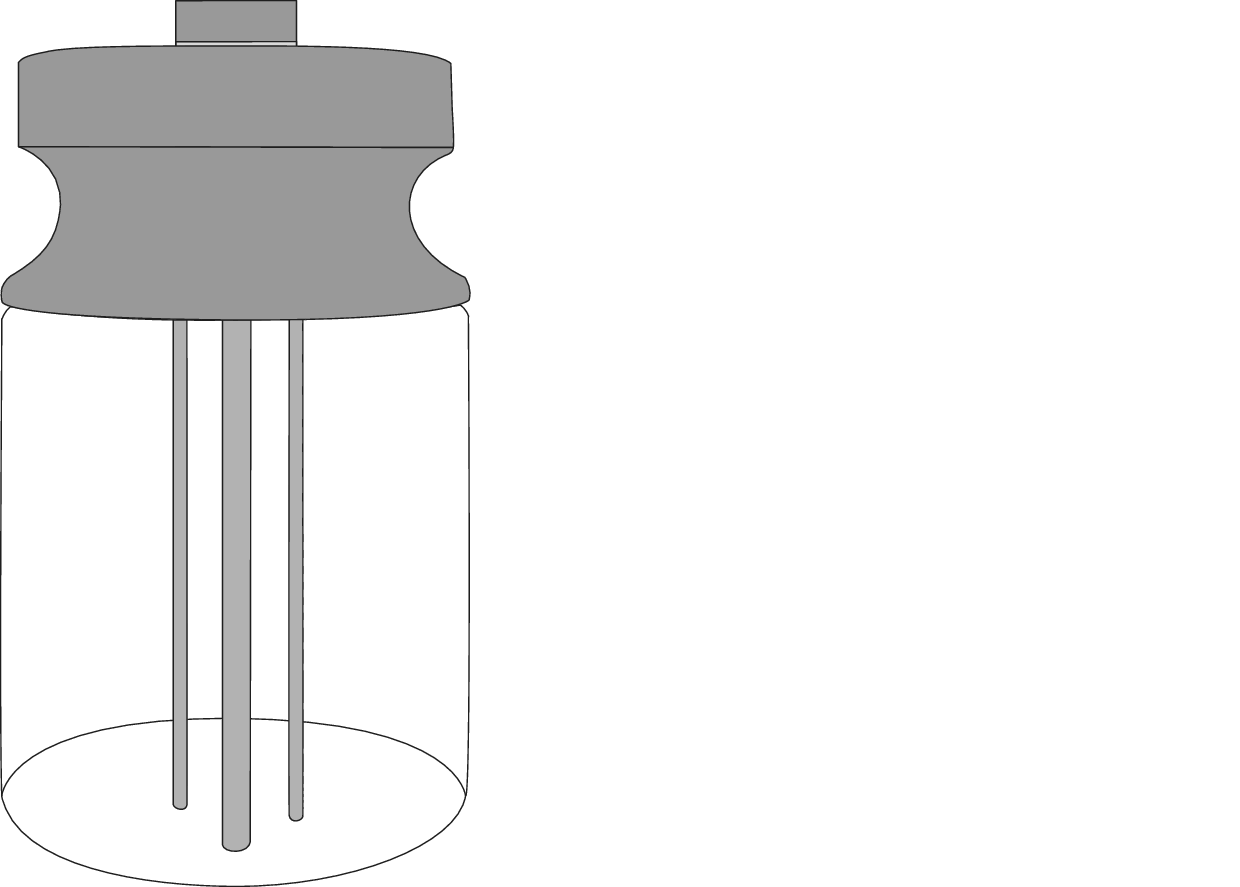
Remove and empty the milk container.
Use a damp sponge cloth to clean the milk container holder on the coffee machine.
Both the lid and the glass container can be cleaned in the dishwasher, or by hand using warm water and a little washing-up liquid.
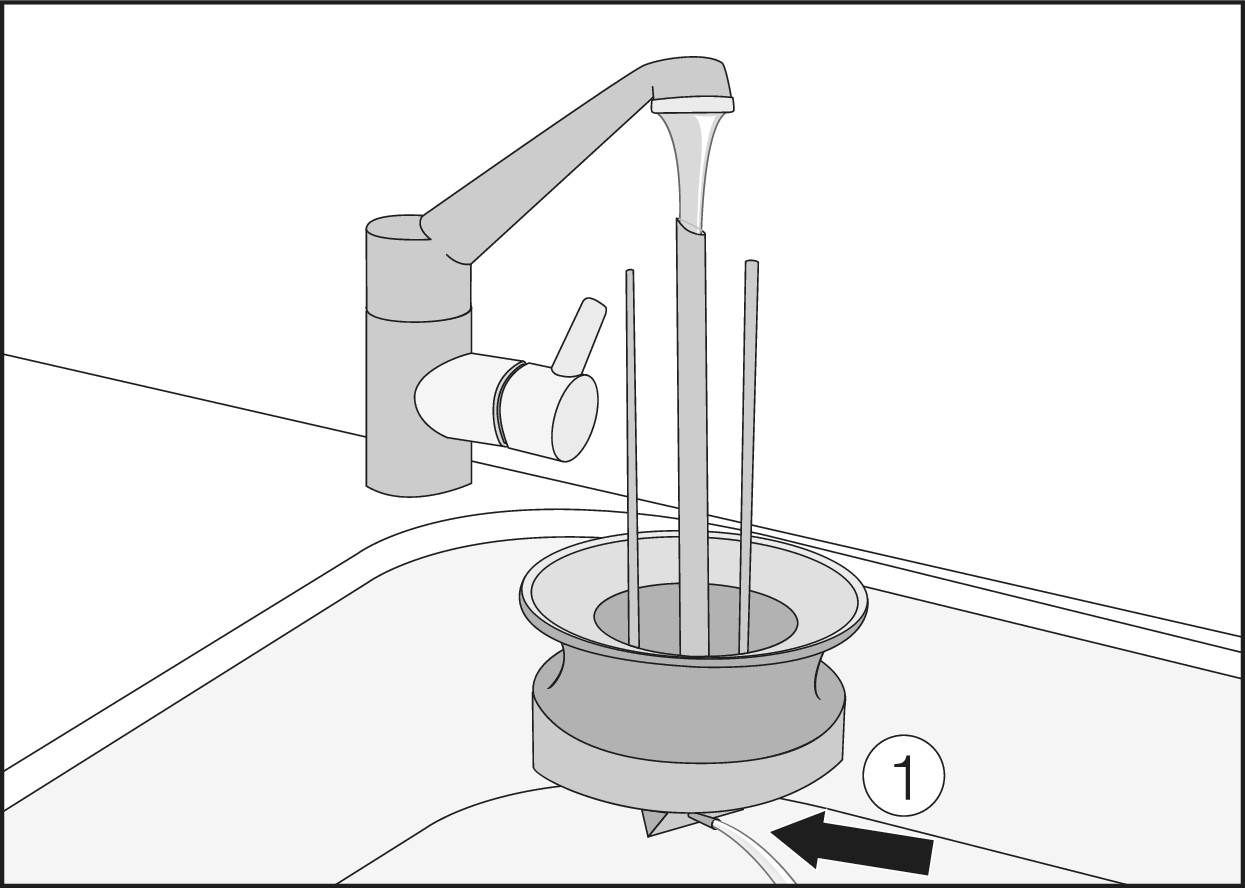
Rinse the milk pipework in the lid under running water and then place the milk container lid in the dishwasher.
If no water flows out of the milk pipework (1), dismantle the milk container lid and clean the lid with the cleaning brush supplied:
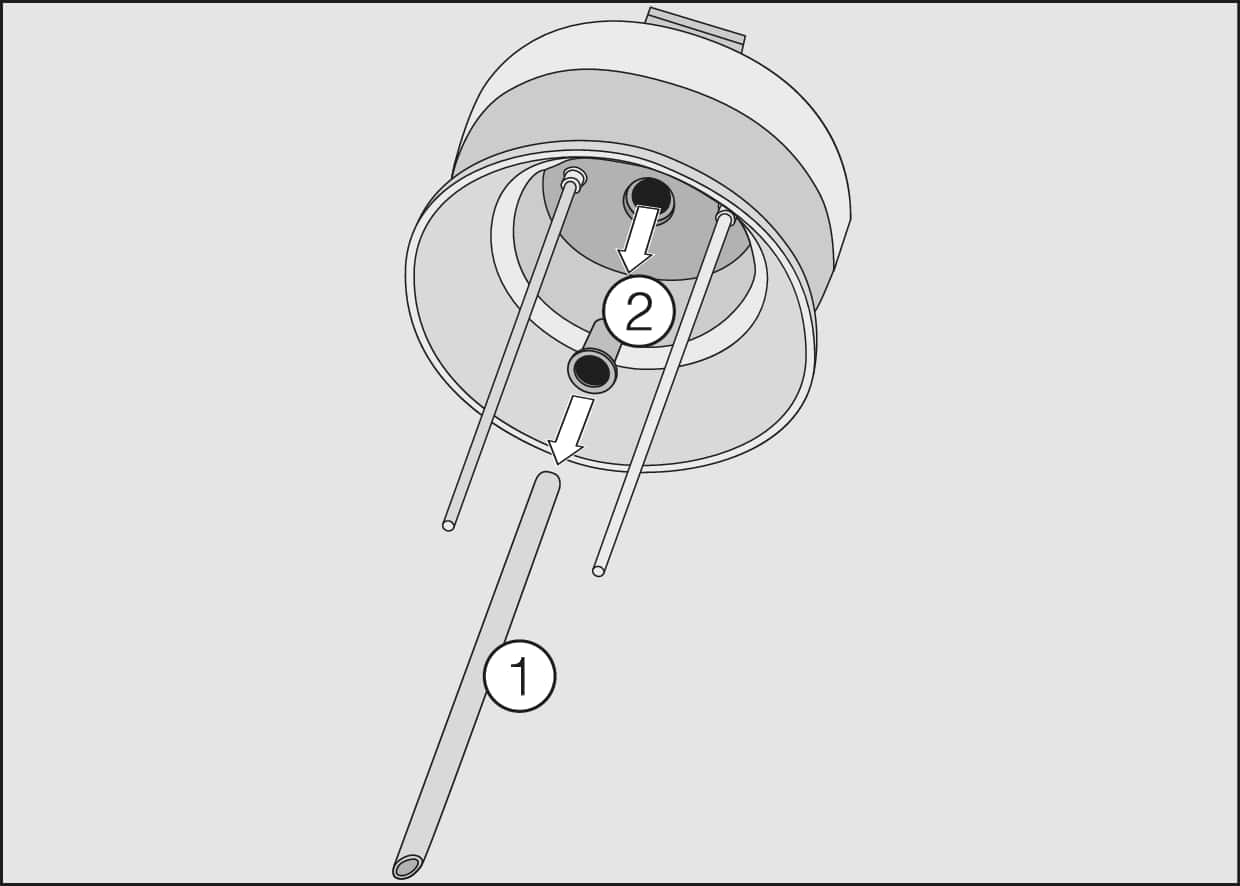
Pull the milk suction tube (1) out of the milk container lid. Ensure that you also remove seal (2) when doing this.
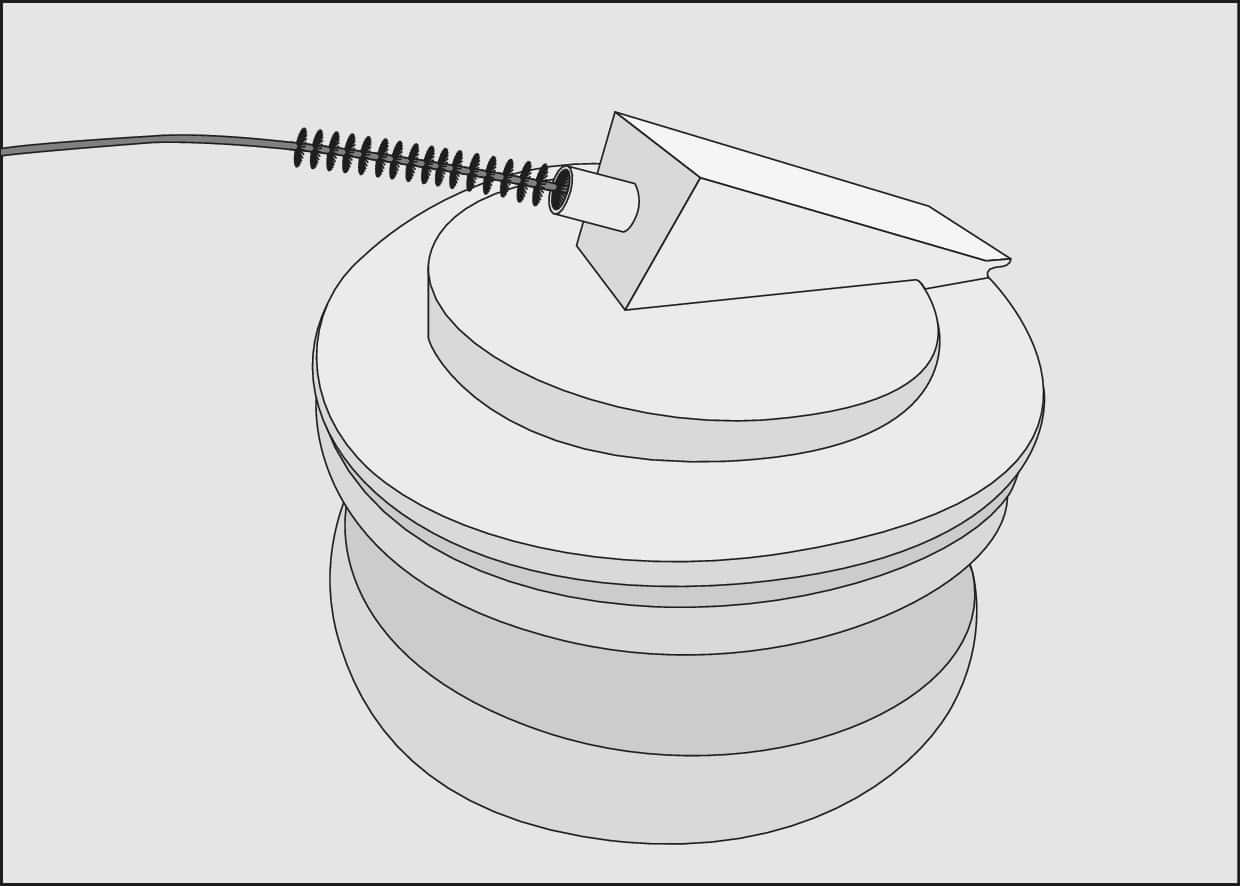
Also use the cleaning brush to clean the milk pipework in the lid from above and below.
When assembling the milk container: first insert the seal into the lid.
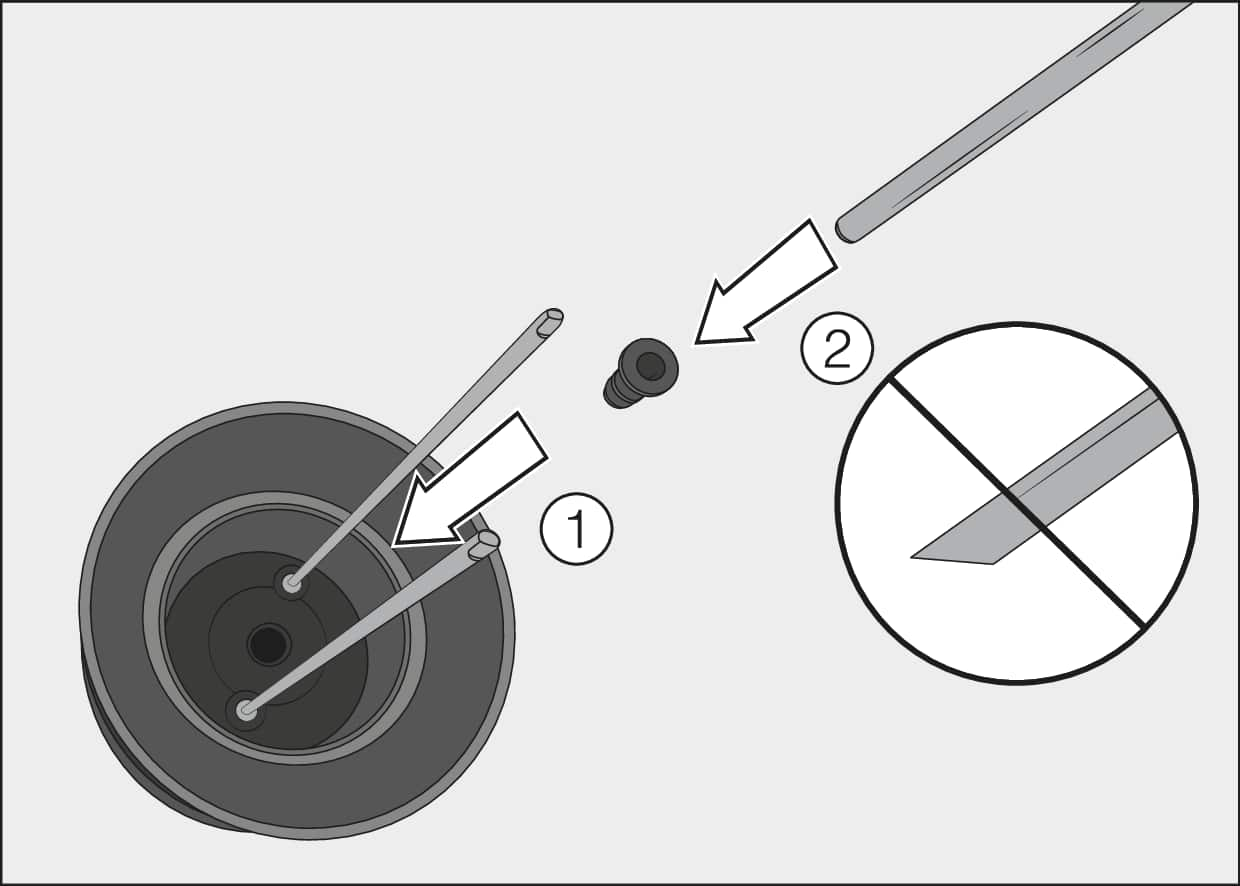
Fit the milk intake tube with the straight end into the seal.
Clean the glass container.
Use a clean cloth to dry all parts, paying particular attention to the threads on the lid and on the glass.
Check whether the central spout has been assembled correctly.
Clean the central spout at least once a week, proceeding as follows:
Bring the central spout into the maintenance position:
Press Main menu or .
Select Maintenance and then Clean the central spout.
Follow the instructions on the display.
The central spout will move into the maintenance position (1).
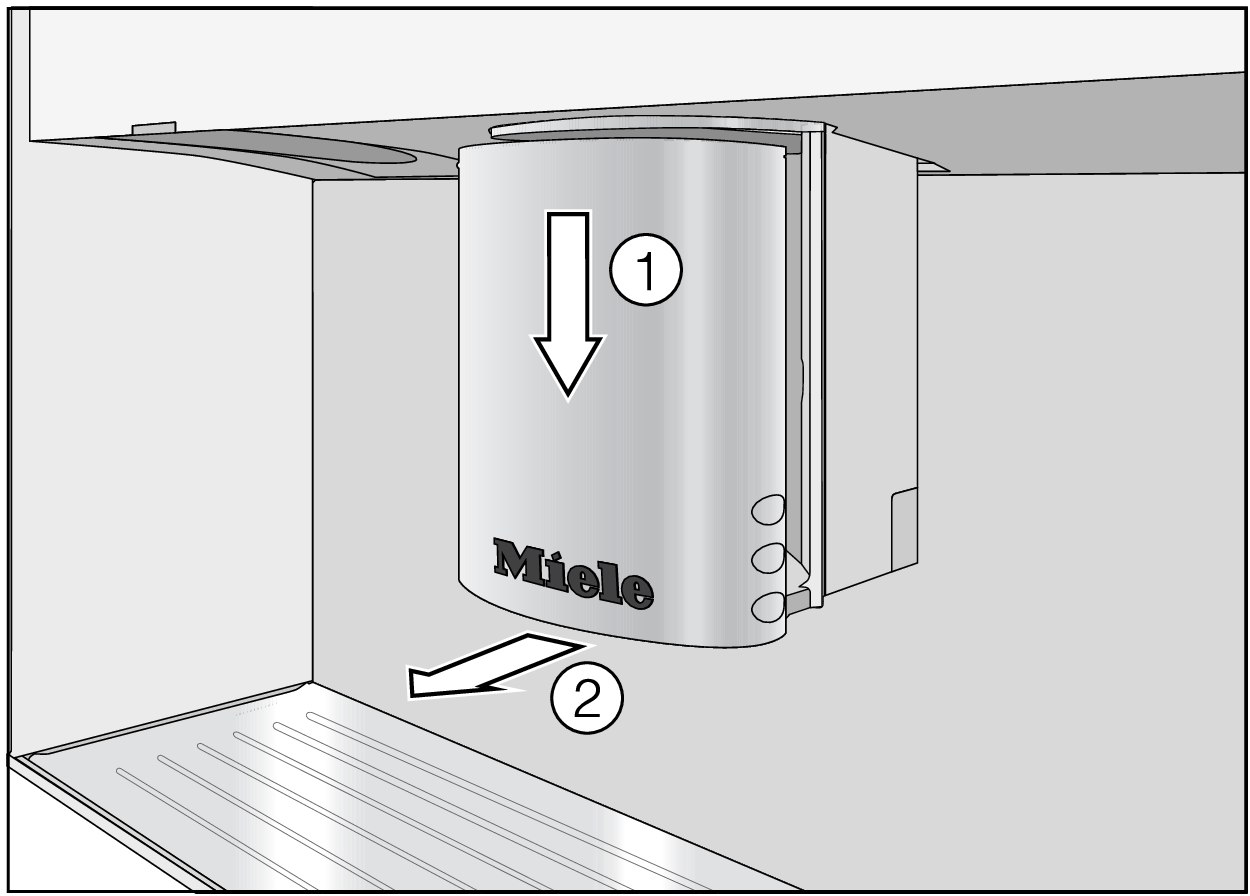
Pull the stainless steel cover off (2).
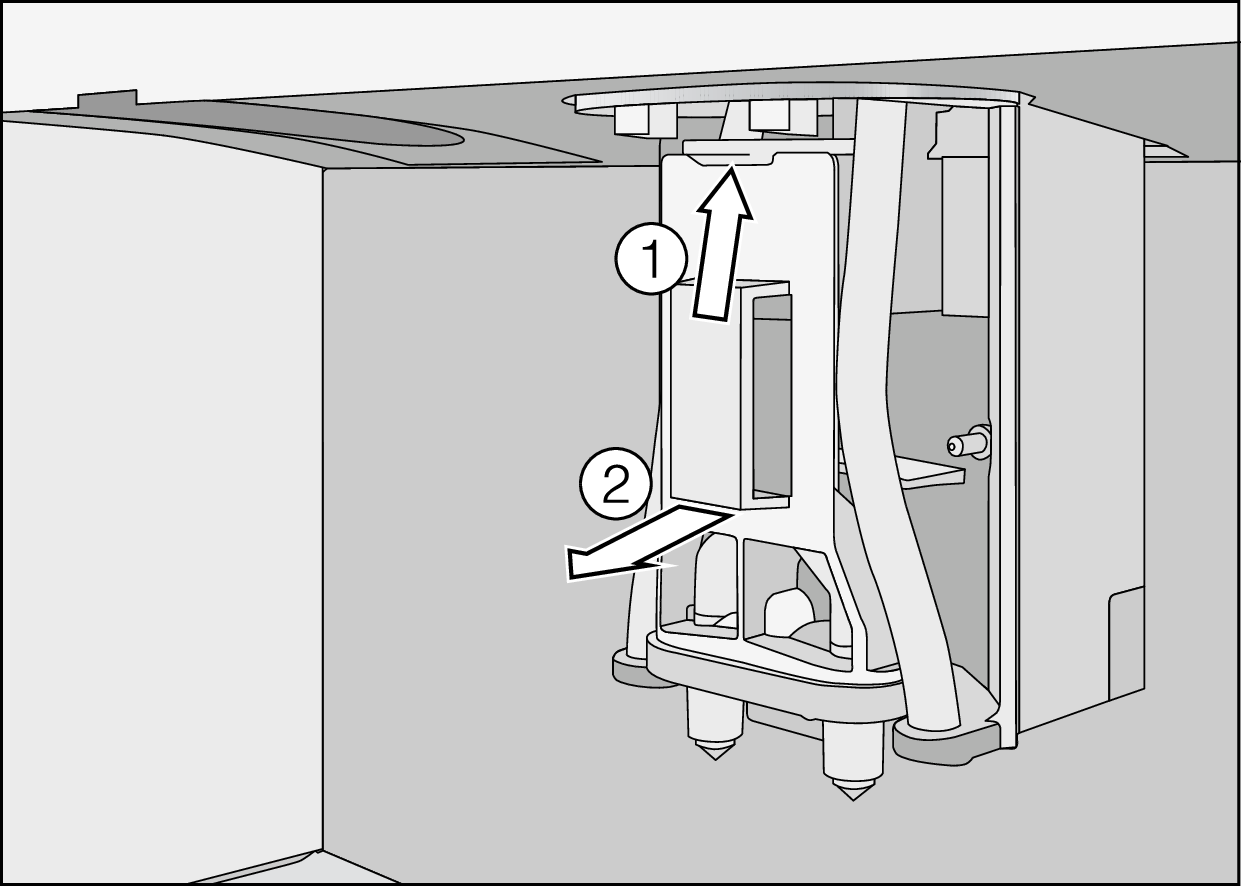
Push the retainer slightly upwards (1). Grip the dispensing unit by the sides and pull it forwards to remove it (2).
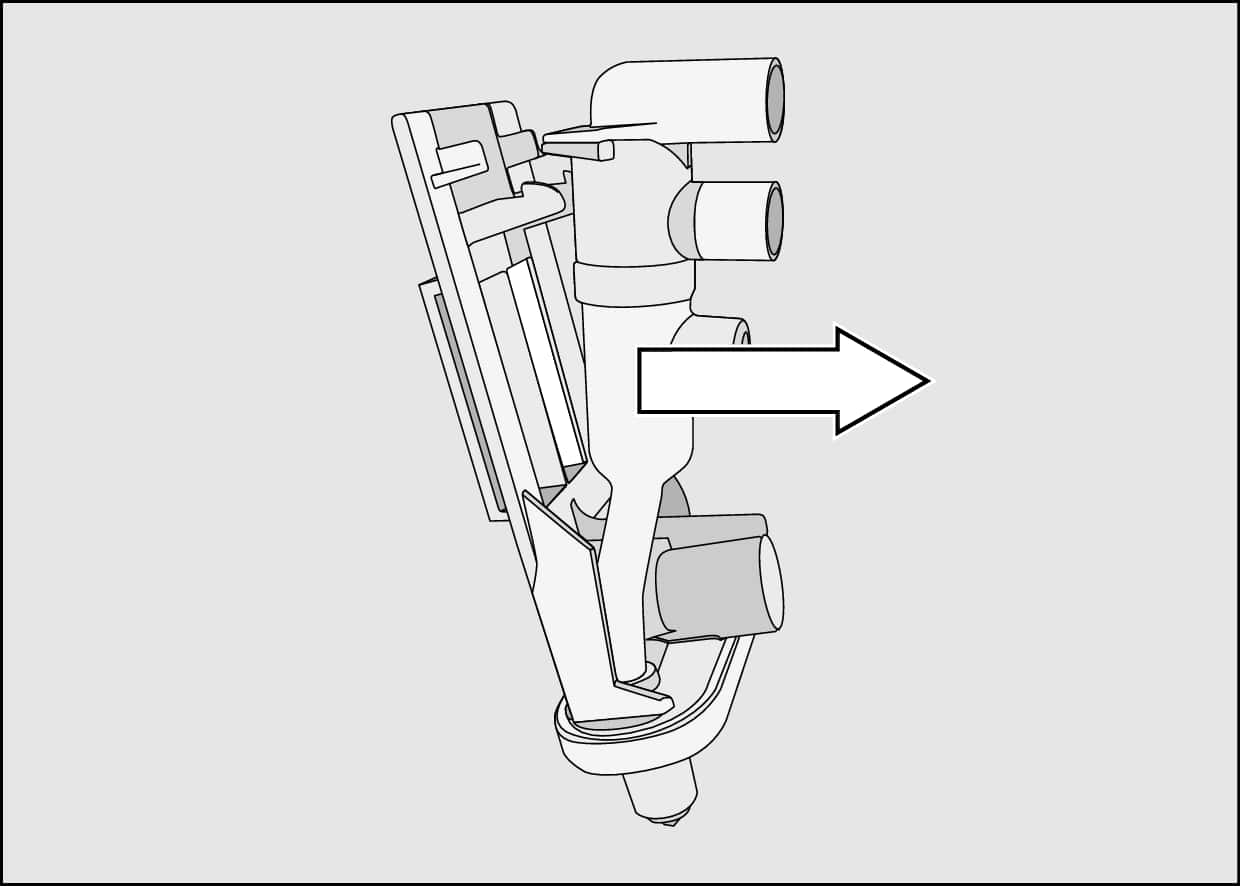
Release the spout by holding the centre of the spout with your index finger and thumb and pulling it forwards.
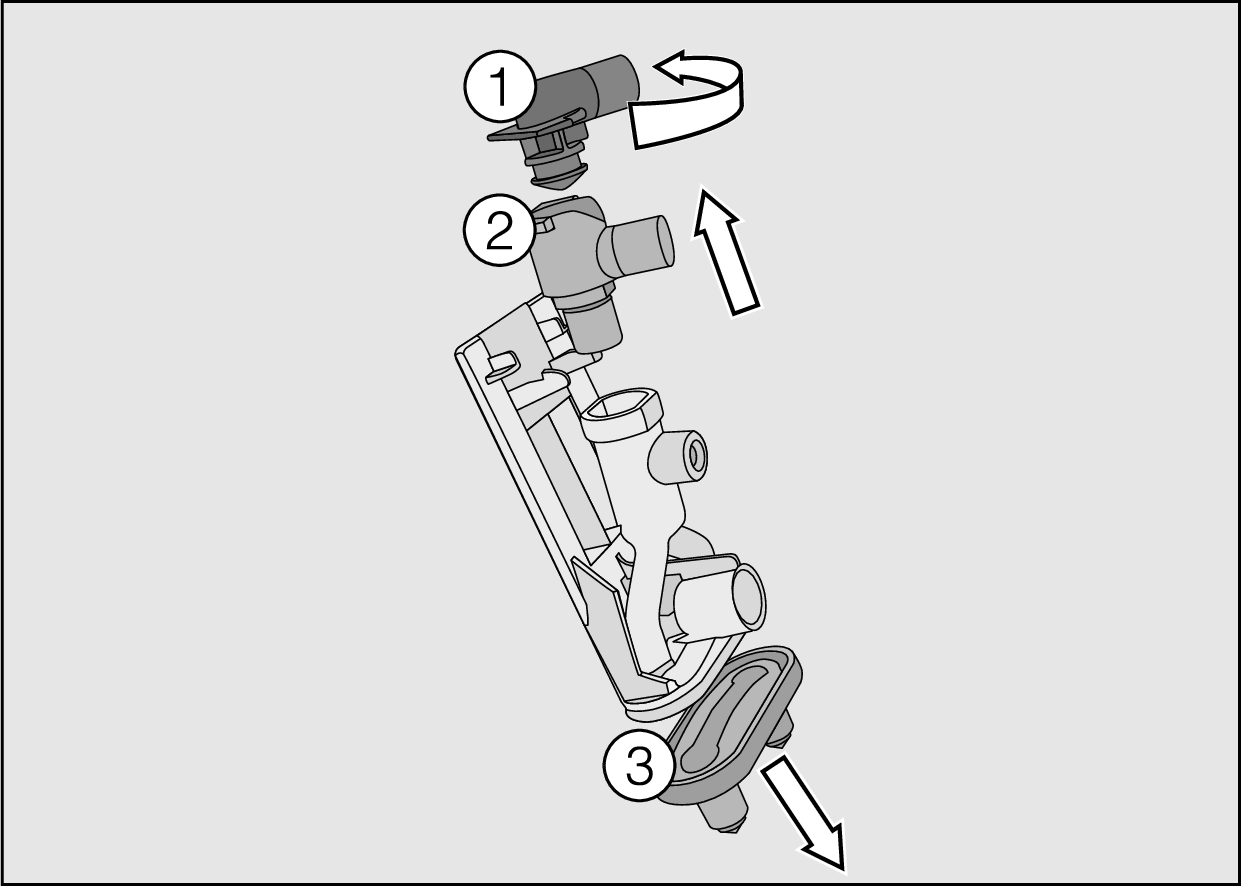
Turn the upper connecting piece (1) and pull it upwards to remove it.
Remove the lower connecting piece (2) in the same way.
Pull off the spout. (3).
Clean all parts (except the stainless steel cover for the central spout) in the dishwasher.
Then reassemble the dispensing unit in the opposite order.
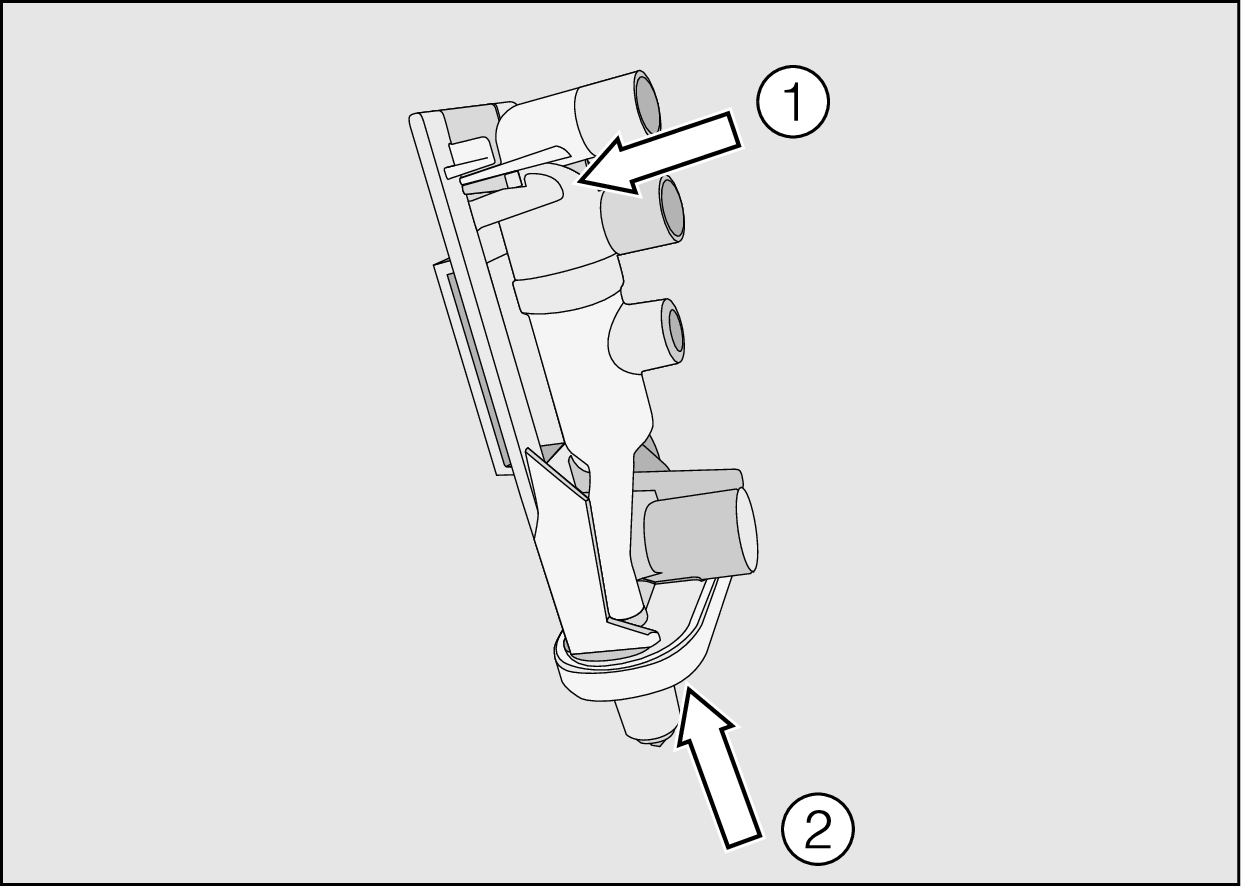
Ensure that the top dispensing piece (1) snaps into place with an audible click.
Push the spouts (2) firmly back onto the dispensing unit.
Replace the dispensing unit in the central spout and touch OK.
Then refit the stainless steel cover and press OK.
The central spout will now be rinsed through.
Replace the blocked elbow connector with the elbow connector supplied. Proceed as follows:
Open the coffee machine door.
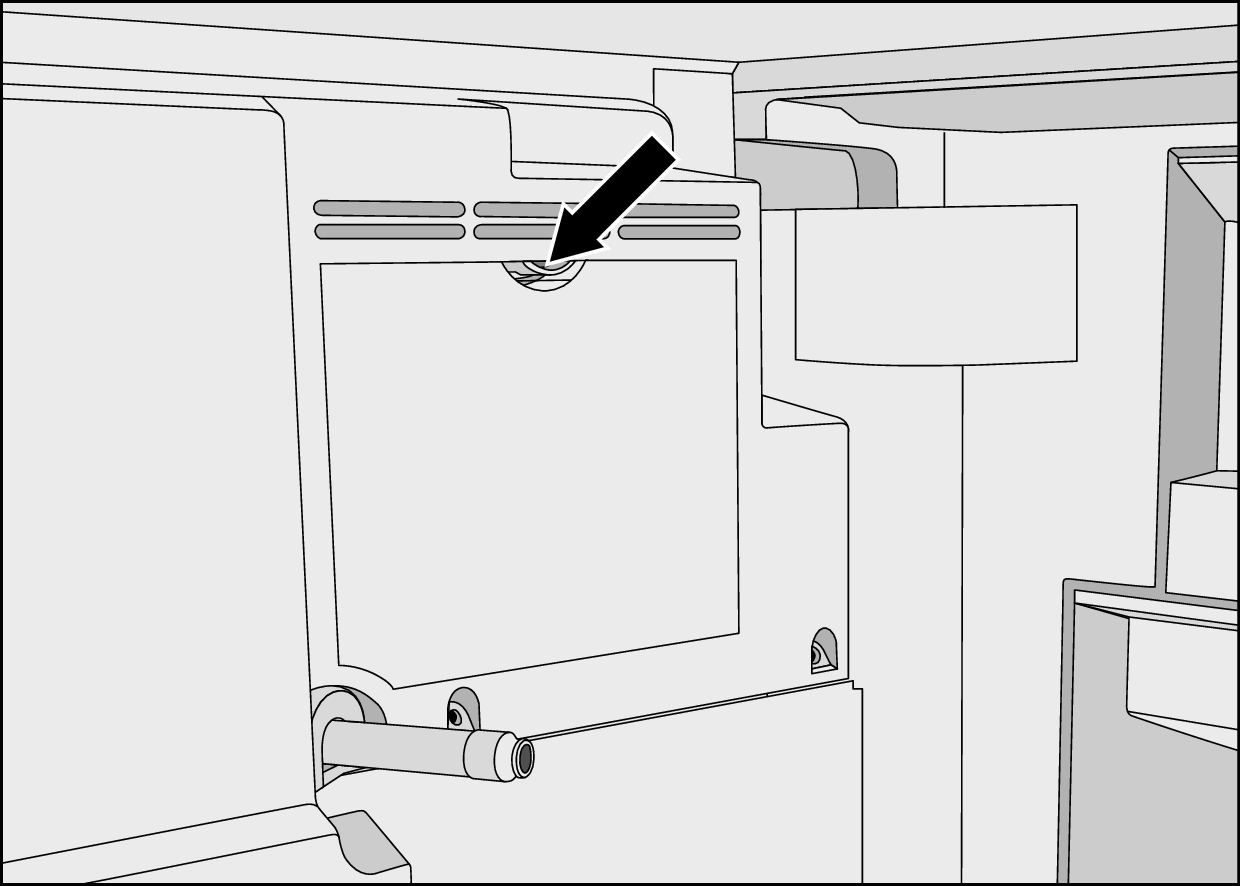
Open the service flap on the back of the appliance door.
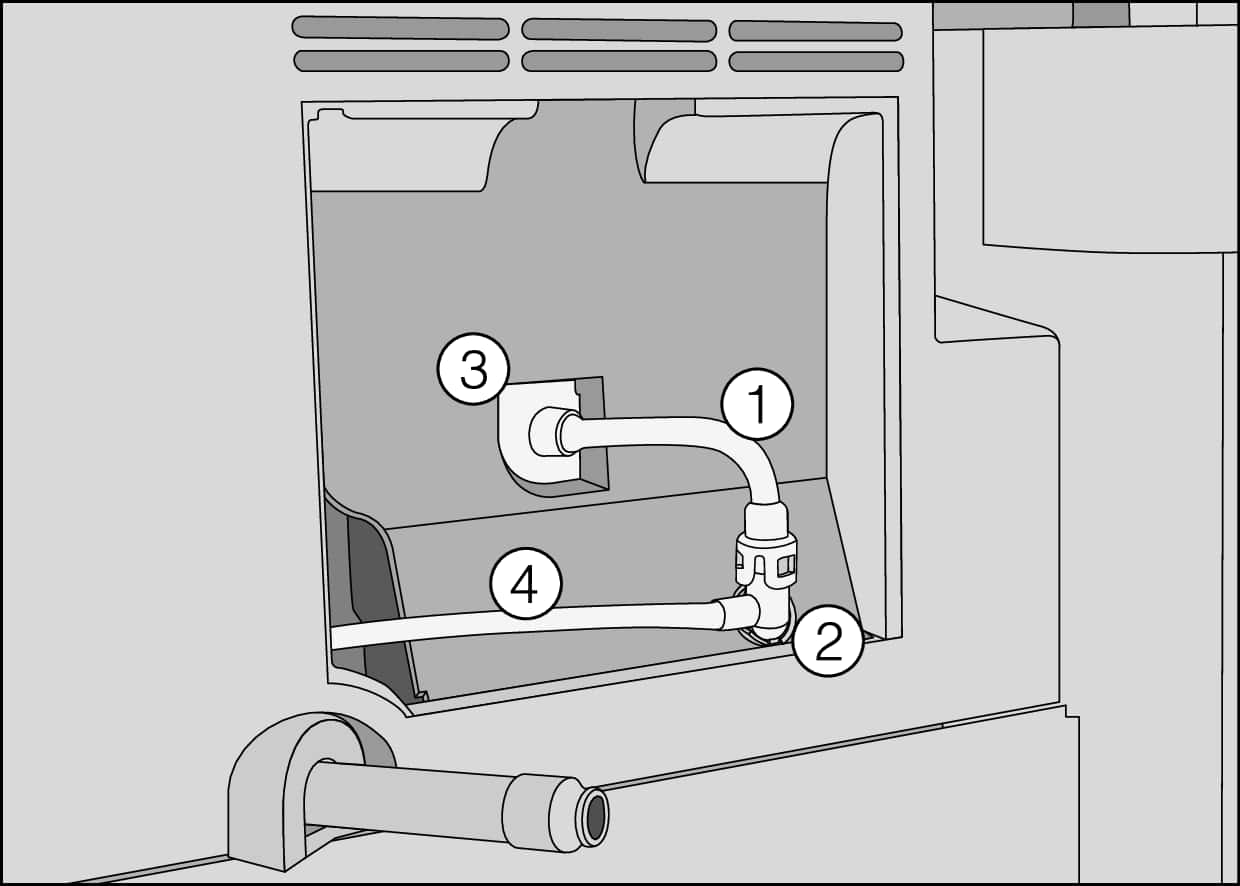
First remove the air intake hose (1) from the opening (3). Then pull off the elbow connector (2).
Pull both hoses off the elbow connector.
Clean the air intake hose (1) under running water using the cleaning brush supplied. Blowing through the hose can also loosen any blockages.
Insert the brush into the milk pipework (4). Move the cleaning brush forwards and backwards as far as possible until all milk residue has been removed.
Now take the new elbow connector. (You can dispose of the used elbow connector in your household waste.)
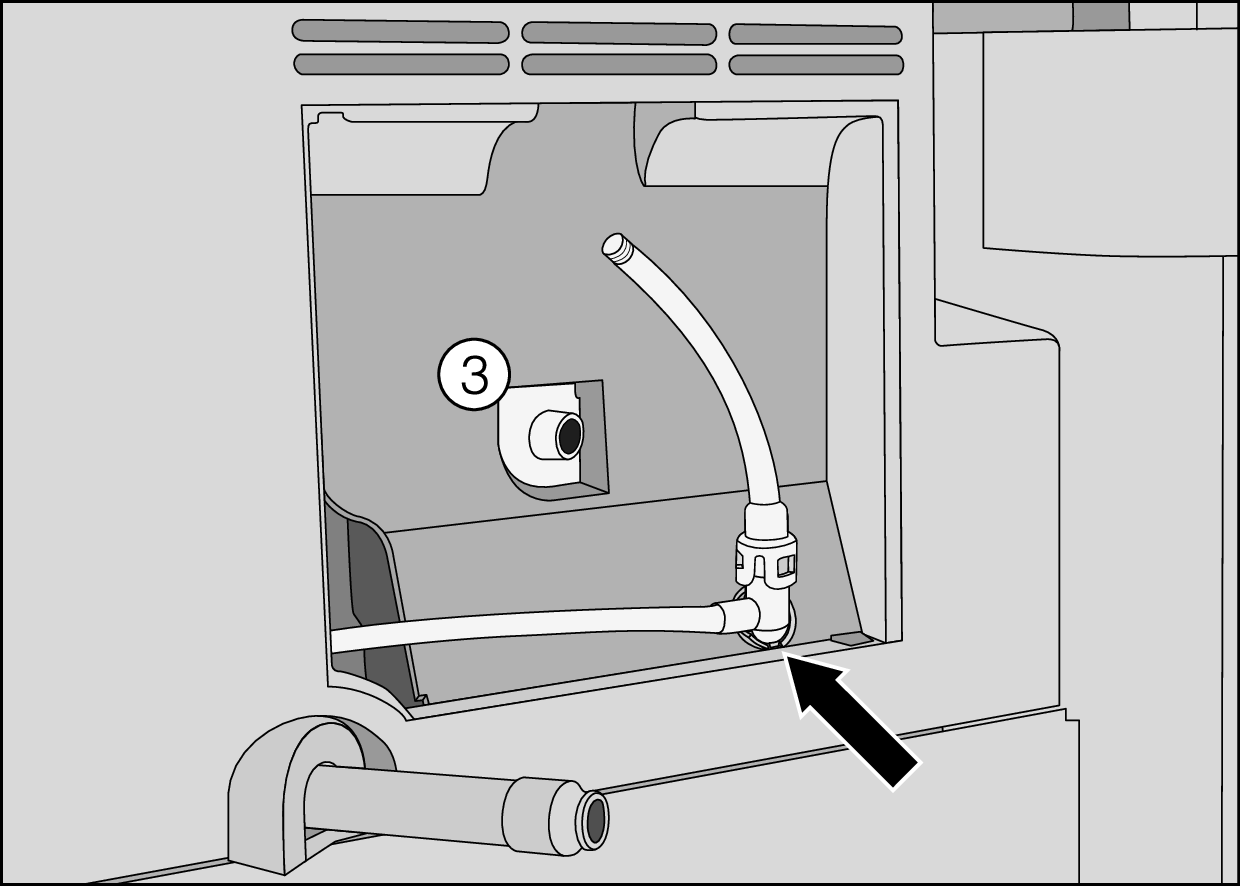
Push the hoses onto the elbow connector and reinsert it. Make sure that the bar on the elbow connector is pointing downwards. The tubes must fit firmly on the elbow connector and form a tight seal.
Insert the air intake hose back into the opening (3).
Refit the service flap.
Close the coffee machine door.
If the fault persists, please contact Miele Customer Service or book a repair appointment online.